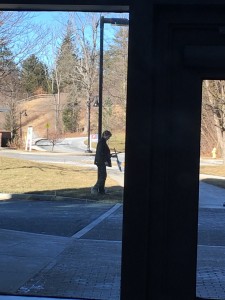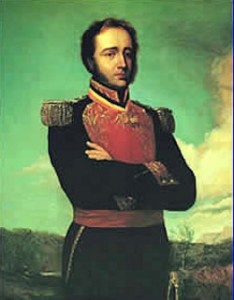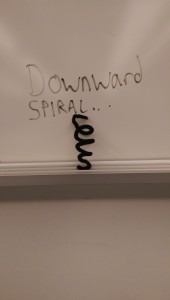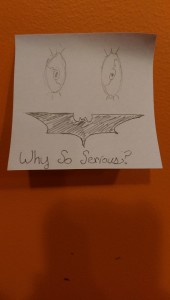- KEEP IT – Failure.
I swear this first one isn’t coming from a selfish or narcissistic place.
Failure has guided a number of our productions thus far and yet I still feel as though we have only scratched the surface of its thematic potential. Failure comes in so many shapes and sizes – authentic, accidental, rehearsed, narrative, personal, romantic… there are too many to count. Failure can be a powerful narrative element, or a powerful performance technique, but more than that, failure is something that people at Williams barely ever discuss. I think that for this reason alone we owe it to ourselves and our community to keep coming back to failure in one way or another.
2. LEAVE IT – Food.
I like eating. Everyone likes eating. It’s how we’re still alive.
But as part of an audience’s experience of a performance, I think we never took it past the “Five Senses” assignment where we started shoving food in each other’s mouths. I don’t think all this food came from a place of legitimate creative inspiration, and while that isn’t a requirement, I feel that since food was so closely tied to that prompt that it has been cheapened as a tool.
Food can also be a logistical nightmare. Allergies, choking hazards, crumbs, crunching sounds, food prep, food storage, bad smells, ANTS, etc.
3. WANT IT – Choice.
I think we’ve talked around choice as a concept in a number of our discussions and assignments. But I think that choice is a powerful tool that we have yet to fully implement as an element of design. The Raph Koster book is all about designing systems of player choice – creating rules to effectively limit and guide player choice. I think that choice is sufficiently different from interactivity – I think that interactivity necessarily involves choice and that choice can be applied at an audience level (participation, etc.) or a performer level (improvisation, perhaps) or especially at a design/creative level (when we’re making the stupid thing!). Choice is a powerful idea that we have not explored all the way. We would benefit from doing so.










